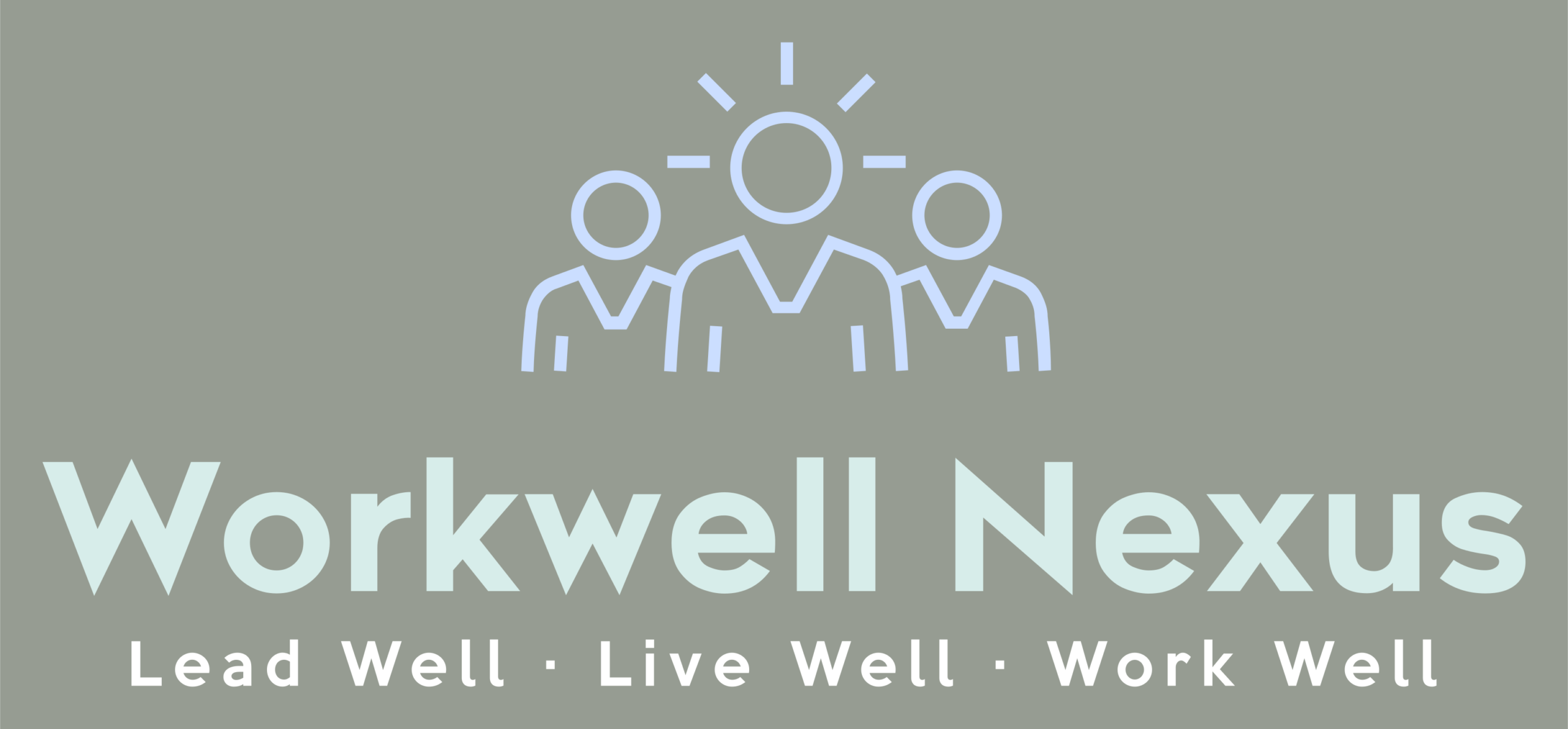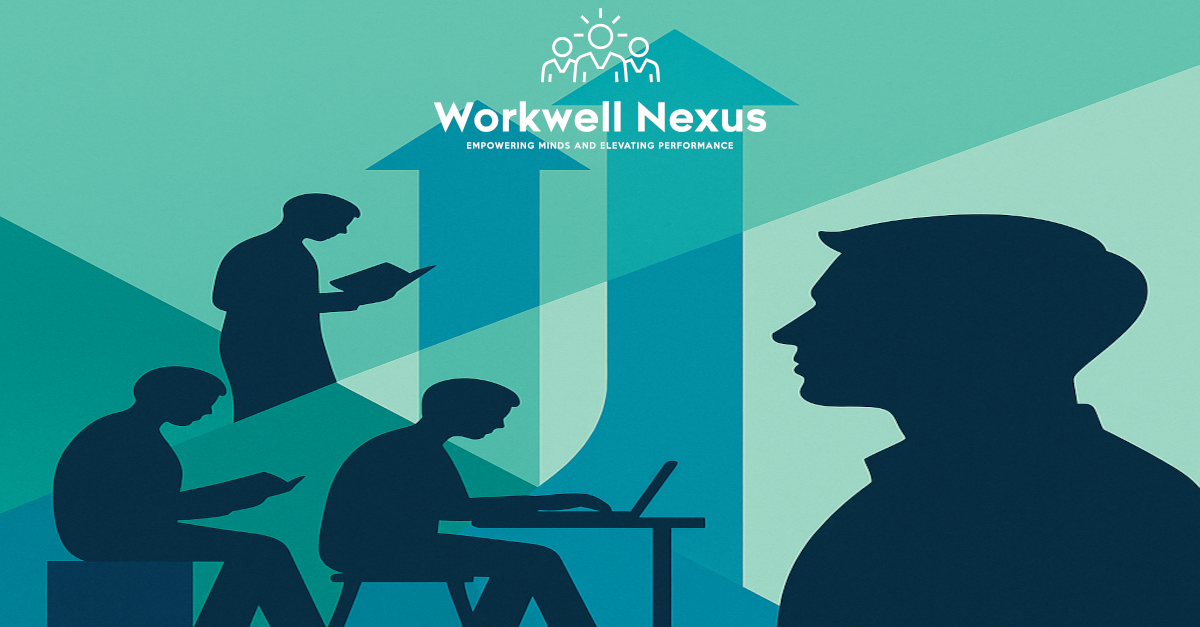Excellence is often talked about as if it were an outcome that simply appears when the right conditions fall into place. We admire high-performing teams, innovative organizations, and market-leading companies as though their success happened naturally — as though excellence is a fortunate accident. But the truth is far more intentional. Excellence does not happen on its own.
You can’t hope for excellence — you build it.
And the foundation of that construction isn’t technology, strategy, or infrastructure — it’s people. The greatest competitive advantage any organization has is the skill, curiosity, resilience, and capacity of the individuals who work within it. When we invest in people, we invest in the future. When we empower them to learn, grow, and expand what they are capable of, we accelerate not only their progress, but the progress of the entire organization.
This is why upskilling is not a perk. It is a performance strategy, a culture strategy, and a business sustainability strategy all at once.
The Myth of “Not Enough Time”
One of the most common barriers organizations cite when discussing professional development is time. Teams are busy. Projects are urgent. Workloads are demanding. Learning often gets pushed aside with statements like:
“We’ll focus on development when things slow down.” “Right now isn’t a good time to schedule training.” “We’d love to invest more in learning, but the work needs to get done first.”
But here is a hard truth: “Being too busy” is not a reason — it is an excuse. And a costly one.
If people are always “too busy” to upskill, the organization will always be too busy solving the same problems, patching the same inefficiencies, filling the same knowledge gaps, and reacting to the same urgent fires. The cycle continues — work demands stay high, capability stays flat, and progress stalls.
Learning is not something that happens after the busy period. Learning is what reduces the busy period.
It increases efficiency. It strengthens problem-solving. It prevents repeated mistakes. It distributes knowledge so fewer tasks bottleneck around a few individuals.
Being too busy to learn is being too busy to improve. And no organization can afford to stay still in a world that is constantly moving.
The Myth of “Ready-Made Talent”
A common misconception persists in many organizations: the belief that high performance is achieved by simply hiring “the best people.” But even the most skilled individual only remains “the best” if they continue learning. The market shifts. Technology evolves. Customer expectations change. Roles transform.
The idea that a company can hire excellence and maintain it without continuous development is like buying a plant and expecting it to thrive without water, sunlight, or care.
Talent is not static. Skill is not permanent. Capability is not fixed.
They all must be nurtured.
Organizations that treat learning as optional eventually fall behind — not because people aren’t trying, but because they lack the tools and knowledge to move forward. On the other hand, organizations that build systems for ongoing development create momentum. They generate progress not just in what people do, but in how they think, collaborate, solve problems, and adapt.
Upskilling as a Strategic Advantage
When employees are encouraged to continually develop their capabilities, something powerful happens. Performance strengthens, innovation increases, engagement deepens, and teams become more resilient in the face of change. These benefits are measurable:
- Higher productivity because people know how to work more efficiently and confidently.
- Better problem-solving because learning sparks broader thinking and new approaches.
- Greater innovation because curiosity is alive, and people are encouraged to experiment.
- Improved retention because people stay where they feel they are growing.
In other words, upskilling is not just about training — it is about unlocking potential.
Organizations that actively invest in learning signal to their workforce:
“You matter here. Your growth matters here. Your future matters here.”
And that message is not only motivating — it is transformative.
Culture Is Built Through Development
Companies often spend a great deal of time discussing culture — how to create belonging, strengthen collaboration, inspire ownership, and support employee well-being. While these are important conversations, the foundation of culture is not what a company states, but what it supports.
A culture where people feel valued does not come from posters or mission statements. It comes from investment in their development.
When employees see that the organization is willing to invest time, money, and attention into helping them grow, the culture becomes one of:
- Trust
- Commitment
- Shared purpose
- Mutual respect
People feel connected to companies that invest in them — not just as workers, but as evolving professionals and human beings.
And that sense of commitment is what strengthens collaboration, productivity, and internal loyalty. It becomes a culture where people want to contribute, not merely where they are expected to.
Future-Proofing the Organization
The pace of change in work is accelerating rapidly. Automation, AI, digital transformation, shifting customer needs, new market entrants, and evolving business models mean that organizations must adapt faster than ever before.
Those that rely on static skills will struggle. Those that continually deepen capability will thrive.
Upskilling is how companies future-proof their strategy.
It ensures that:
- Teams can adopt new tools and technologies.
- Leaders can respond to shifts with confidence.
- Departments can redesign workflows when necessary.
- Innovation can emerge from anywhere in the organization.
Progress becomes continuous — not reactive.
The organizations best prepared for the future are those that understand that the future is not something to wait for; it is something to prepare for.
The Human Element of Progress
While business outcomes are important, the human experience at work matters just as much. People want to feel that they are growing. They want to know that their work is meaningful. They want to feel capable, confident, and valued.
Learning provides that.
Growth provides that.
Development provides that.
When people achieve new skills, they don’t just gain knowledge — they gain agency. They gain the belief that they can take on challenges, adapt to change, and step into new responsibility.
They discover the capacity within themselves to lead.
And when many individuals in an organization feel that way, the organization becomes stronger, more innovative, more resilient, and more capable of shaping its own direction.
From Hope to Construction
Hope is not a strategy. Excellence is not an accident. Progress is not a coincidence.
They are built.
Built through curiosity.
Built through support.
Built through learning.
Built through people.
So we return to the core message:
You can’t hope for excellence — you build it.
Invest in learning.
Invest in people.
Invest in progress.
When organizations build excellence intentionally — person by person, skill by skill, day by day — they don’t just reach their goals. They expand what is possible.

